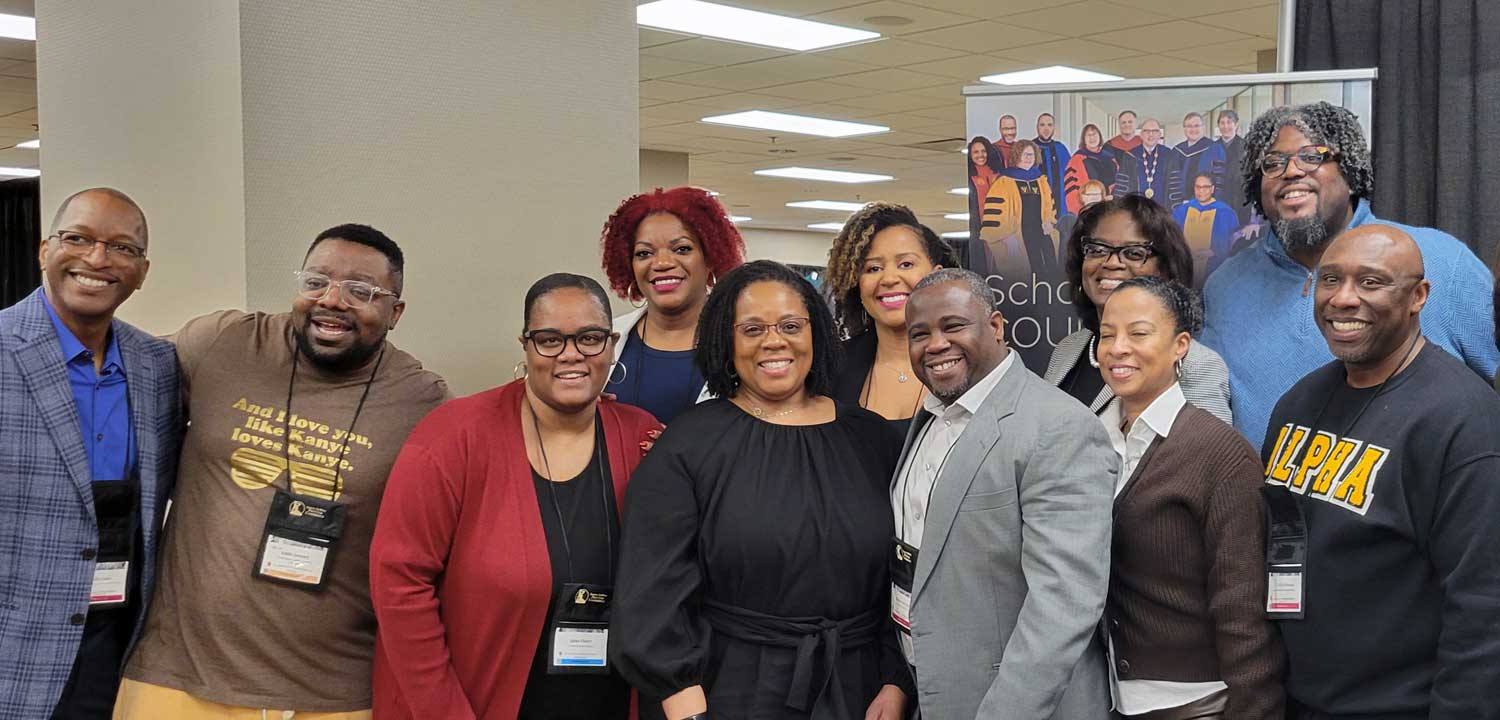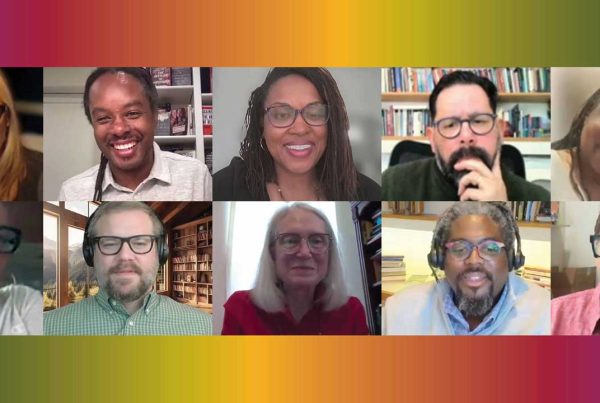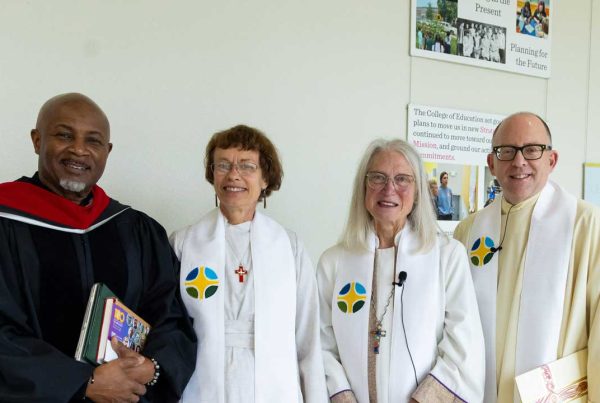CTS attends Samuel DeWitt Proctor Conference 2024
This year marks the 21st year of the convening of the Samuel DeWitt Proctor Clergy and Lay Leadership Conference. Since its inception, the Conference, affectionately known as “Proctor,” has become a national network for pastors, activists, lay persons, and communities interested in working for social justice. This year’s event hosted inspiring and uplifting worship services, socially relevant plenary sessions, and a range of special interest work groups, all oriented around justice-based themes. The Conference seminarian track is particularly attractive, as students may participate in the Conference for course credit, while being led by top scholars functioning as Conference Deans. This is also a significant opportunity to engage with fellow seminarians from across the country. Since at least 2017, CTS faculty, staff, and students have attended Proctor. CTS alums Rev. Nicole Barnes and Rev. Janai Downs reflect on how Proctor has impacted their lives and ministries, in conversation with CTS faculty member, Dr. Courtney V. Buggs.
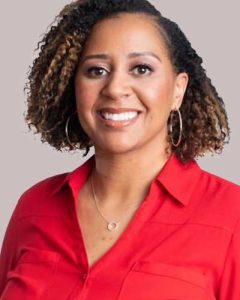 Rev. Nicole Barnes writes: I have attended Proctor, every year, since being introduced in 2020 by my professor, Dr. Courtney Buggs. It was my final year of seminary and I was in awe of the proud, unapologetically Black space that had been cultivated. The accessibility to knowledge, truth and community is both lifegiving and invaluable to me. That has not changed and the Chicago Conference provided countless moments and remarks that I’m still pondering. Tuesday’s opening plenary on transgenerational trauma was both soothing and agitating. The profound honesty shared left me both frustrated by the scarcity of such conversations in my experiences and deeply grateful for the space provided by Proctor. One thing that continues to resonate deeply within me is the insight shared by Dr. Stephanie Crumpton on the relationship between trauma and our flesh. Crumpton shared, “flesh is the first place we need to work on our trauma.” Therefore, we need to reframe our theology of ‘wrestling against flesh’ because of trauma’s deep impact on our bodies. As a Black woman who has sat in the tension of reconciling my life experience with some of the things I’ve learned theologically related to my body, that statement was both liberating and validating. I’m grateful.
Rev. Nicole Barnes writes: I have attended Proctor, every year, since being introduced in 2020 by my professor, Dr. Courtney Buggs. It was my final year of seminary and I was in awe of the proud, unapologetically Black space that had been cultivated. The accessibility to knowledge, truth and community is both lifegiving and invaluable to me. That has not changed and the Chicago Conference provided countless moments and remarks that I’m still pondering. Tuesday’s opening plenary on transgenerational trauma was both soothing and agitating. The profound honesty shared left me both frustrated by the scarcity of such conversations in my experiences and deeply grateful for the space provided by Proctor. One thing that continues to resonate deeply within me is the insight shared by Dr. Stephanie Crumpton on the relationship between trauma and our flesh. Crumpton shared, “flesh is the first place we need to work on our trauma.” Therefore, we need to reframe our theology of ‘wrestling against flesh’ because of trauma’s deep impact on our bodies. As a Black woman who has sat in the tension of reconciling my life experience with some of the things I’ve learned theologically related to my body, that statement was both liberating and validating. I’m grateful.
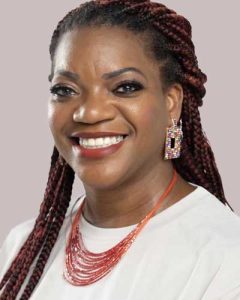 Rev. Janai Downs echos: It was circa 2021. I was a second-year MDiv student, enrolled in a class led by Dr. Courtney Buggs, designed around the attendance and active participation in the Samuel DeWitt Proctor Conference, which was held virtually that year. I believe it was within the first 30 minutes of the opening session that I sent a message to some classmates, “Remind me to never miss this conference again!” And three years later, I feel the same excitement and appreciation for the Proctor Conference as well as CTS’s strong involvement and support of the conference. While there were many meaningful moments this year, Dr. Obari Cartman, a mental health advocate, made a statement during the plenary on Transgenerational Trauma that spoke to my soul. He said, speaking of governmental spaces, “The most violent areas of a city are the ones that create the policies and the conditions for violence, control, isolation, and domination elsewhere.” I’m reminded of the work that yet lies ahead and I believe strongly in the proclamation that the Black Church must be at the table to righteously combat injustices. Dr. Iva Caruthers, the conference’s General Secretary noted that the conference experience was about bridging the academy, the church, and the community. I’d add that it provides a much-needed, safe and brave space for clergy, lay leaders, seminarians, and co-conspirators of Black voices to convene.
Rev. Janai Downs echos: It was circa 2021. I was a second-year MDiv student, enrolled in a class led by Dr. Courtney Buggs, designed around the attendance and active participation in the Samuel DeWitt Proctor Conference, which was held virtually that year. I believe it was within the first 30 minutes of the opening session that I sent a message to some classmates, “Remind me to never miss this conference again!” And three years later, I feel the same excitement and appreciation for the Proctor Conference as well as CTS’s strong involvement and support of the conference. While there were many meaningful moments this year, Dr. Obari Cartman, a mental health advocate, made a statement during the plenary on Transgenerational Trauma that spoke to my soul. He said, speaking of governmental spaces, “The most violent areas of a city are the ones that create the policies and the conditions for violence, control, isolation, and domination elsewhere.” I’m reminded of the work that yet lies ahead and I believe strongly in the proclamation that the Black Church must be at the table to righteously combat injustices. Dr. Iva Caruthers, the conference’s General Secretary noted that the conference experience was about bridging the academy, the church, and the community. I’d add that it provides a much-needed, safe and brave space for clergy, lay leaders, seminarians, and co-conspirators of Black voices to convene.
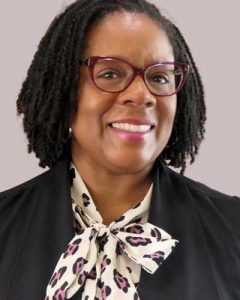 Rev. Dr. Courtney Buggs writes: Returning to Proctor each year is returning to the annual family gathering, where we worship together, think together, celebrate together, and at times weep together. I first attended Proctor at the invitation of one of my professors in 2016, and now have the pleasure of inviting students to attend and collaborating with CTS alumni on the social issues that affect marginalized communities. Building on the legacy of the renowned public theologian and preacher, Samuel DeWitt Proctor, the 2024 theme, “Where Legacy Meets Future: ReImagine, ReThink, and ReInvent,” challenged us to thoughtfully consider current issues such as trauma, artificial intelligence, environmental justice, voting rights, poverty mitigation, and theological responses to violence both in the US and abroad. These are difficult topics, and Proctor makes space for collective work among persons who are committed to a better world. My hope is to encourage my students – masters and doctoral level – to participate in justice-based practices no matter their context. Proctor is one of the ways in which we may live out the CTS core value of working toward justice for all. Proctor is both welcoming and uncompromising in its commitment to African diaspora people and the culture – the music, the language, the knowledges, and the traditions – of persons of African descent. We are reminded through the elders and the ancestors that learning happens in diverse ways, and that prophetic imagination creates the possibility for a more desirable future.
Rev. Dr. Courtney Buggs writes: Returning to Proctor each year is returning to the annual family gathering, where we worship together, think together, celebrate together, and at times weep together. I first attended Proctor at the invitation of one of my professors in 2016, and now have the pleasure of inviting students to attend and collaborating with CTS alumni on the social issues that affect marginalized communities. Building on the legacy of the renowned public theologian and preacher, Samuel DeWitt Proctor, the 2024 theme, “Where Legacy Meets Future: ReImagine, ReThink, and ReInvent,” challenged us to thoughtfully consider current issues such as trauma, artificial intelligence, environmental justice, voting rights, poverty mitigation, and theological responses to violence both in the US and abroad. These are difficult topics, and Proctor makes space for collective work among persons who are committed to a better world. My hope is to encourage my students – masters and doctoral level – to participate in justice-based practices no matter their context. Proctor is one of the ways in which we may live out the CTS core value of working toward justice for all. Proctor is both welcoming and uncompromising in its commitment to African diaspora people and the culture – the music, the language, the knowledges, and the traditions – of persons of African descent. We are reminded through the elders and the ancestors that learning happens in diverse ways, and that prophetic imagination creates the possibility for a more desirable future.
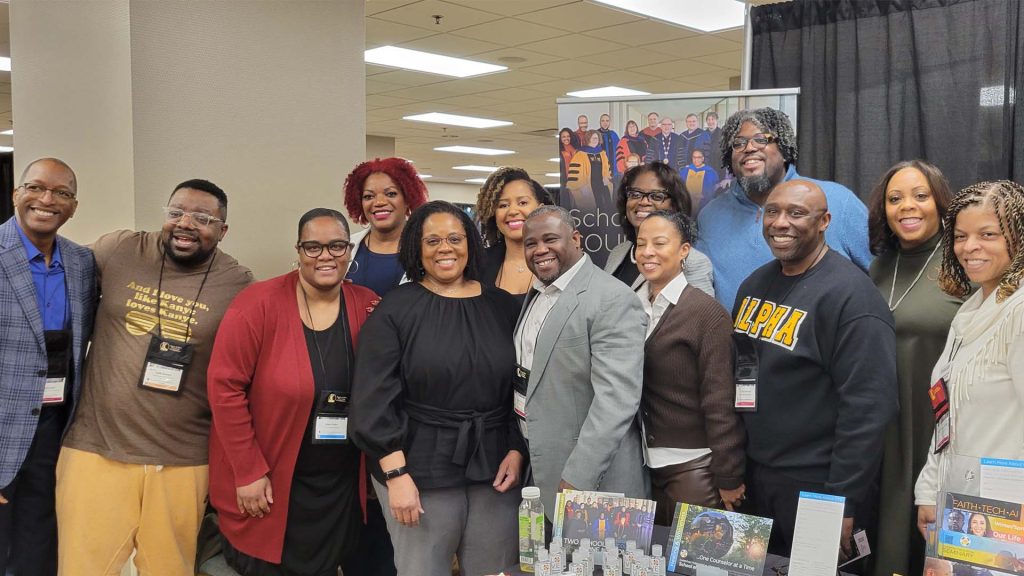
Members of the CTS community gather at the 2024
Samuel DeWitt Proctor Clergy and Lay Leadership Conference.
From left to right: Rev. Dr. Philip Karl James (CTS Adjunct Professor), Rev. Dr. Eddie Journey (MDiv/MACMHC ‘14)), Rev. Jaime Fluker (MTS ‘17), Rev. Janai Downs (MDiv ‘22), Rev. Dr. Courtney V. Buggs (Faculty), Rev. Nicole Barnes (MDiv ‘20), Rev. Dr. Rickey McCray (Staff, MDiv ‘13, DMin ‘19), Rev. Dr. Alise Barrymore (Current Student), Rev. Dr. Carmin Frederick-James (DMin ‘19), Rev. Dr. Nicholas Peterson (Faculty), Rev. Dr. F. Willis Johnson (MDiv ‘06), Rev. Dr. Alexia Ellis (MDiv ‘12), and Margaret Highbaugh Harrell (Staff).

